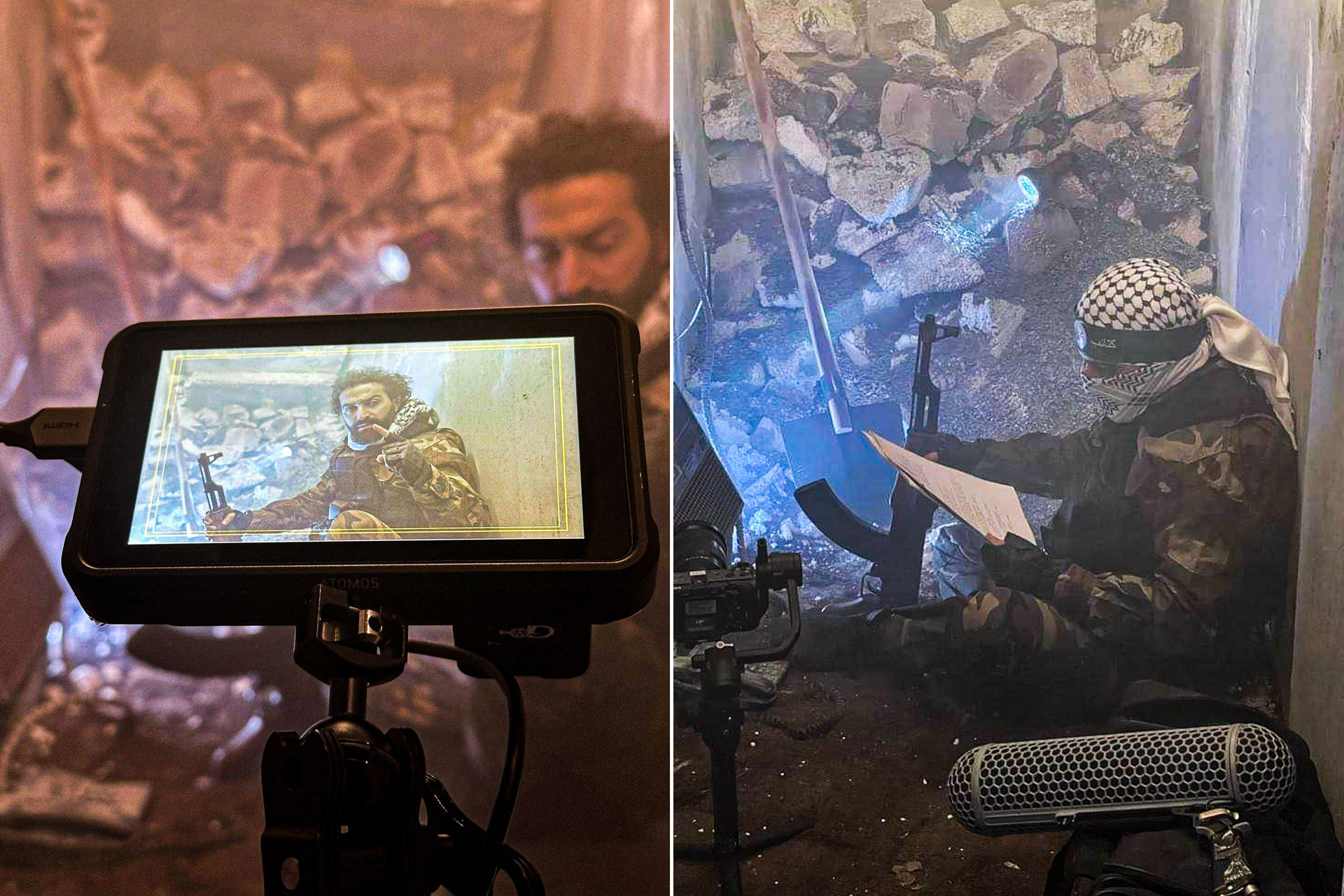The film was technically filmed in a single location style (Al Jazeera)
From one of the Gaza tunnels, communication with a Palestinian resistance fighter and a prisoner of the occupation is cut off due to the bombing that the Strip is being subjected to, which leads the events and dialogue in the film “Shadows of Freedom” by Palestinian director Nawras Abu Saleh to other dimensions.
The breadth of the idea and the narrowness of the tunnel
Nawras Abu Saleh tells Al Jazeera Net, “The film was technically filmed in a single location style,” which is an idea that appeals to him because he creates a story from the details present in the location and the dialogue between people present in one area without moving to another location, and these are also the factors that attract the viewer towards a scenario. New every time amid bombardment that the tunnel is constantly affected by.
These were the Palestinian director's tools to attract the viewer towards 15 intense minutes of thoughts without boredom creeping in.
Contact with them is cut off, and the resistance fighter tries to secure the prisoner and hand her over for an exchange deal or a humanitarian truce at that stage. Because of their siege together in that tunnel, a serious dialogue takes place between them about the Palestinian issue and the details of who is right and who is wrong? Why is there resistance? Why is there an occupation? Each of them pushes his arguments in a certain direction, in addition to the market for humanitarian backgrounds.
While the Palestinian resistance is doing his best to try to preserve the “deposit” according to the description the film chose for the prisoners, in search of liberating Palestinian women prisoners and achieving a truce that will stop the killing machine, he is having a conversation with the prisoner, which is interrupted at times by a new bombing, and at other times the tendency inherent in the Israeli whole is represented in that prisoner. Conscript "suspended".
In his work, Abu Saleh focuses on the national aspects in which he keeps pace with reality (Al Jazeera)
The fragility of the occupier’s ideology and the world’s bias
As for “Fatima,” the martyr sister of the resistance fighter, she took the discussion to more frank aspects, as her “Palestinian beauty” did not allow her to receive the sympathy of the West, as is the case with the Ukrainian blondes of “Kiev,” whose captive kept yearning for her return there, where her origins were, with the first test. Leaving behind what she argued was the “Promised Land.”
The story of the liberated Palestinian prisoner Israa al-Jaabis is also discussed, in which the resistance fighter explained what the occupation did with her fingers, and her beautiful face to the Israeli prisoner, and then continued in a depiction that carries the idea of the complementarity of patience and strength, “But we are all her fingers.”
Art is in responding to the falsity of the novel
What is interesting about the film is that for the first time, an imaginary aspect of what is happening in the tunnels is dealt with, and the film’s director reveals to Al Jazeera Net that among his motives for producing this film, in addition to a feeling of artistic and moral responsibility towards what is happening in Gaza and Palestine, it is also a response with the Palestinian narrative to the arguments The media has begun to collapse, starting with the talk about the killing of 40 children, cutting off their heads, and hanging them on October 7, all the way to the issue of sexual harassment, which the prisoners themselves denied when they were released.
Abu Saleh adds, "Yet they are still repeating this lie, and America is promoting this argument that continues to resonate on the tongues of the media, so the allegations had to be rejected and denied, and art is one of the means of conveying this message, especially since we are talking about an Israeli prisoner, and the resistance fighter knows that he will hand her over." To complete a deal.
The film deals with the masked resistor as a human being, with a humanitarian background, dreams, a family, and a message. “Humanizing” this resistor is the role of art, according to the director of the work, and Abu Saleh adds, “My duty as a person belonging to this resisting people is to play this role.”
The film's special premiere took place a few days ago in Istanbul before being shown to the public online. Nawras Abu Saleh is a Palestinian director who began his career directing patriotic musical works. His directing of the feature-length dramatic film "Oversized Coat" marked a shift in his directorial career, a film that was released in 2015. In Amman, it deals with the Palestinian issue between 1987 and 2006 with the participation of a group of Palestinian and Jordanian stars.
Source: Al Jazeera

